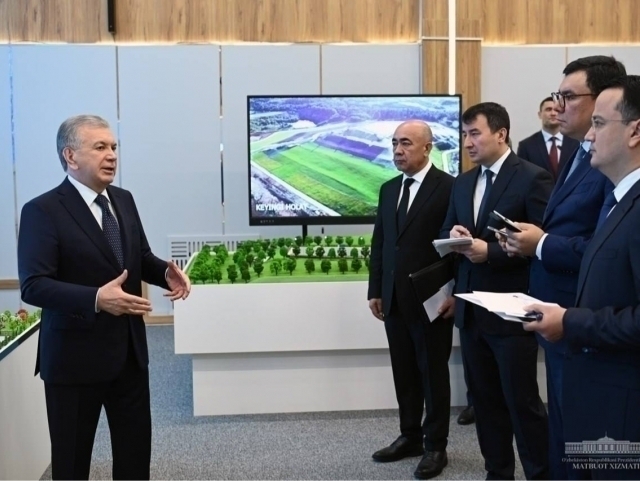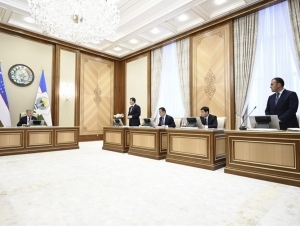These are not just factories, they are one of the crutial issues to our lives - Mirziyoyev
Local
−
21 October 2024 9266 2 minutes
Today, on October 21, President Shavkat Mirziyoyev stated that factories are pivotal to the country's future during the presentation of projects focused on processing household waste and generating electricity at the Central Asian University of Environment and Climate Change Studies. This was reported by the President's press service.
"This is not just a factory; it is one of the issues that will determine our life and death. The condition of our land and water, public health, air quality, and energy stability depend on this sector. Proper collection and processing of waste will improve the ecological balance, keep nature clean, and transform society," noted the President.
The projects are set to be implemented in Andijan, Bukhara, Jizzakh, Kashkadarya, Navoi, Namangan, Samarkand, Syrdarya, Fergana, Tashkent regions, and Tashkent city between 2025 and 2027.
For instance, two factories will be built in Andijan and Tashkent due to a direct investment of $350 million from the Chinese company CAMC Engineering. These factories will process 4,000 tons of waste per day and generate 630 million kilowatt hours of electricity annually.
Another Chinese firm, Shanghai SUS Environment, is interested in this sector and plans to build two factories in Samarkand and Kashkadarya, investing $310 million. These facilities will process 3,000 tons of waste per day and generate 480 million kilowatt hours of electricity annually.
A plant will be constructed for the Bukhara and Navoi regions with an investment of $200 million from the Tadweer Group of the United Arab Emirates. This plant will process 1,500 tons of waste daily and generate 363 million kilowatt hours of electricity annually.
A project involving the South Korean company Sejin, with an investment of $55 million, will enable the generation of alternative electricity from gas produced at a household waste landfill in the Ohangaron district of the Tashkent region, with a capacity of 16 megawatts.
Overall, these projects aim to ensure the rational use of solid household waste. Annually, over 4.7 million tons of waste are burned, producing 2.1 billion kilowatt hours of electricity. This electricity will be valued at $97 million, saving 152 million cubic meters of natural gas and reducing 2.4 million tons of greenhouse gases. Additionally, approximately 1,200 new jobs are expected to be created.
Live
All




